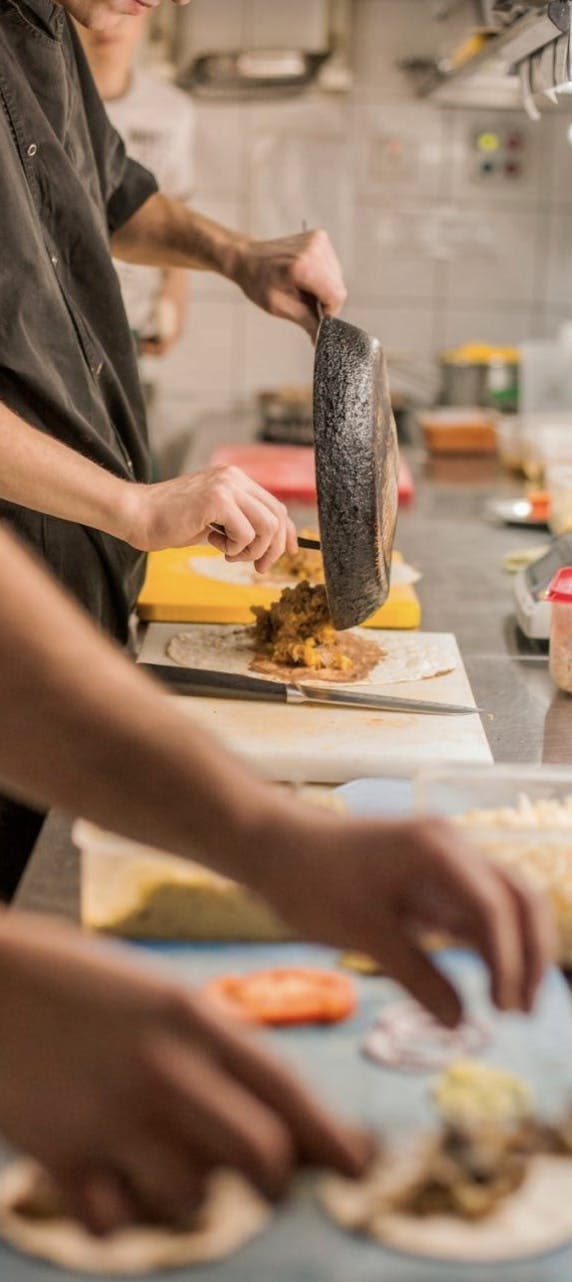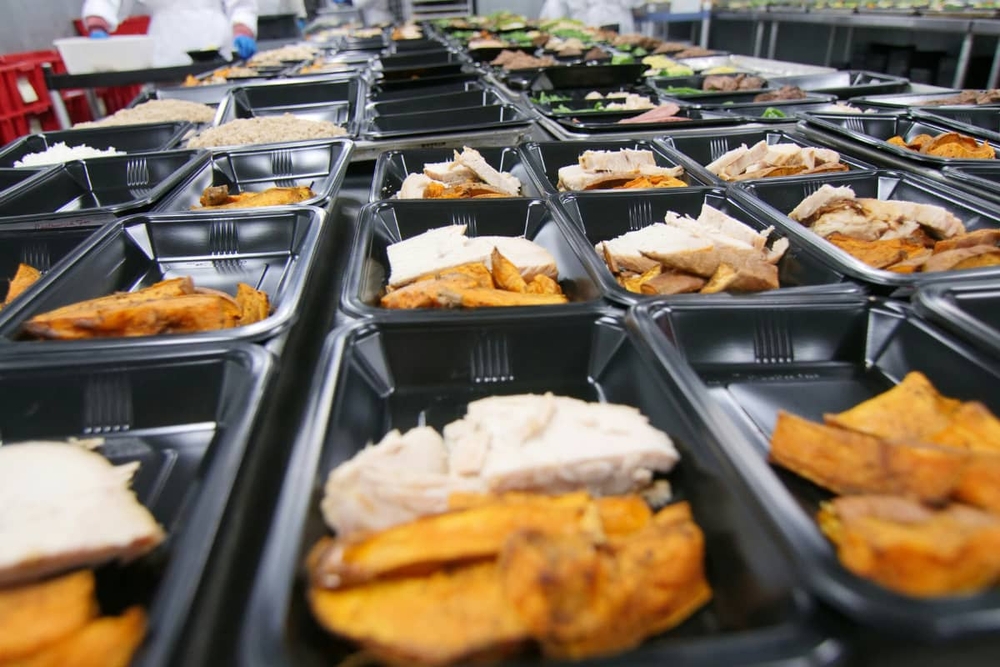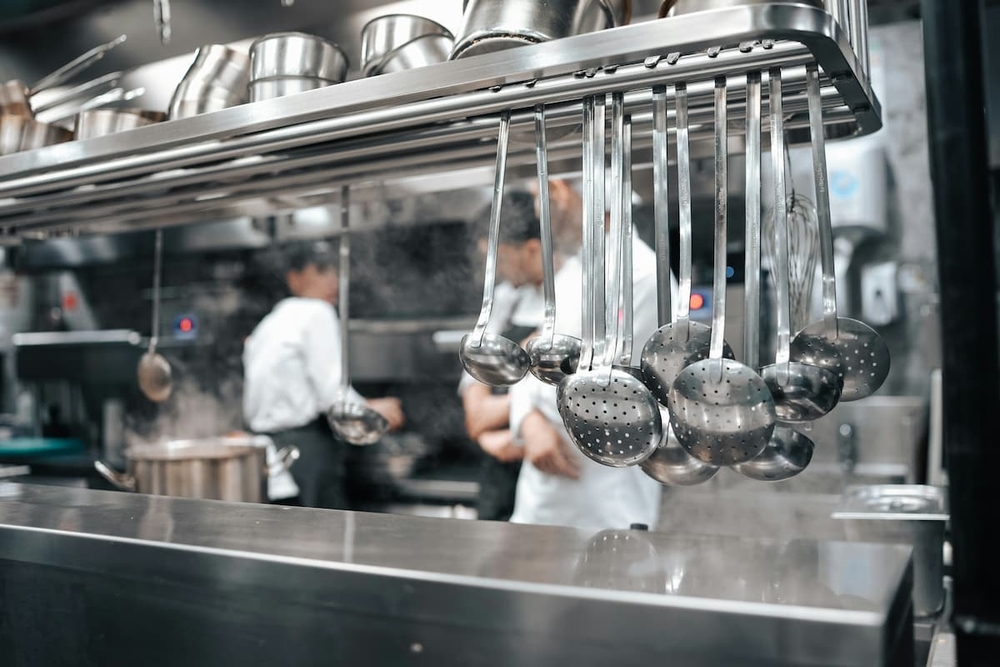Navigating City Laws and Licensing for Ghost Kitchens: A Guide for Marketing Directors and Restaurant Managers
Table of Contents
CloudKitchens
How many tacos can be delivered from a 1000sqft restaurant?
The same amount as a 200sqft ghost kitchen.
Opening a ghost kitchen is an excellent way for up-and-coming small business owners and food entrepreneurs to bring their dishes to the market through third-party delivery without incurring hefty rental fees for actual dining space.
In an era where nearly everything can be delivered, online food delivery has experienced the most significant rise over the past few years. The U.S. ranks second only to China in the industry, which generated an estimated $353 billion in revenue in 2024. Thus, it is no surprise that more food entrepreneurs are shifting their focus to online food deliveries for a wider market reach and cost efficiency.
However, starting a ghost kitchen isn’t particularly easier than opening a dine-in restaurant. Marketing directors and restaurant owners must still comply with specific laws and licensing requirements imposed by the local, federal, and state governments to operate their businesses legally.
Read more: What are Ghost Kitchens? The definitive guide to Virtual Restaurants
Laws, permits, and licenses for a ghost kitchen
Business License
The issuance of a business permit means that you have complied with all the regulatory requirements needed to operate your business legally, including a valid legal name and EIN or Tax ID. Depending on your business activities, your ghost kitchen may be subject to local, state, or federal business license requirements.
For example, a delivery restaurant that sells alcohol may require federal permits from the Alcohol and Tobacco Tax and Trade Bureau, as well as a local general business license.
All businesses are required to renew their licenses annually to ensure compliance with regulatory requirements.
Choose a Business Structure and Name
Choosing the right business structure for your ghost kitchen not only impacts your day-to-day operations, but also all the operational requirements and permits necessary for starting the business, as well as the degree of responsibility, risks, and benefits the owner (or owners) will face.
The most common business structure food entrepreneurs can choose from includes:
- Sole proprietorship: Owned by a single person, where they put their personal assets at risk but also reap all the business benefits.
- Partnership: Two or more people sharing capital, ownership, profits, losses, and liability over a business.
- LLC: A crossover structure between a corporation (where liability is limited) and a partnership (availability of pass-through taxation).
- Corporation: A structure offering liability protection to its owners, and is taxed and considered as a separate entity.
Adrian Iorga, Founder & President at 617 Boston Movers, says, “Your business structure will determine where (and if you need to) file certain documents at your local government office. Sole proprietors typically do not need to submit any documents for their business structure. In contrast, LLCs and corporations are required to submit operating agreements or Articles of Incorporation with the Secretary of State.”
All business structures should also choose a business name that is not already in the Secretary of State’s records. You can check this information on the United States Patent and Trademark Office website.
EIN and Tax ID
An EIN, or Employer Identification Number, is a unique federal tax identification number for your business for tax purposes. An EIN allows you to hire and pay employees, open a business bank account, and file business taxes, whether you have a profitable ghost kitchen or not.
An EIN can also help ghost kitchen entrepreneurs access business loans to alleviate capital or cash flow problems, or turn to debt relief strategies when a business is struggling with startup debts.
Health Permit
Often interchangeably referred to as a sanitary permit, a health permit ensures that a business complies with relevant safety and health standards in its operations. These are particularly critical for businesses in the food industry, including restaurants, ghost kitchens, and food trucks.
Requirements for obtaining a health permit vary by state. For example, Sacramento County in California requires the submission of a plan review, payment of application and fees, compliance with the California Retail Food Code, and regular inspection schedules before issuing a health permit to any food facility, including ghost kitchens.
Alcohol Sales Permit
Depending on state laws, an alcohol sales or liquor permit determines how, when, and to whom a business can sell alcoholic beverages.
Regarding delivery or take-out orders, ghost kitchens that plan to offer alcohol as part of their menu must obtain a liquor permit, the requirements for which vary by state. Some examples are:
- California: Restaurants are permitted to sell alcohol for off-site consumption, provided that the customer personally collects it. Delivery is expressly prohibited.
- Georgia: Licensed alcohol retailers are allowed to deliver alcoholic beverages in their original, sealed containers from the manufacturer.
- Hawaii: Licensees engaged in meal service can sell unopened alcoholic beverages for pick-up, delivery, or take-out.
Brooke Webber, Head of Marketing at Ninja Patches, says, “Food entrepreneurs should ensure that their delivery riders have identifiable business marks, such as IDs, uniforms, or business patches, to maintain accountability and verifiability of the riders and ensure customer safety, especially for items such as alcoholic beverages.”
Food Handler’s Permit
Individuals employed under a food service business are required to undergo and obtain a Food Handler’s Permit or Certificate. This certificate ensures that employees have sufficient knowledge of:
- Safe cooking, serving, and storage
- Cleaning food-contact surfaces
- Safe waste handling and disposal
- Temperature specifics for each type of food
- Preventing illnesses from improper food handling
Food handlers should prioritize safe food preparation and overall cleanliness and sanitation. Having custom t-shirts for staff uniforms with head coverage or head restraints will help ensure that food preparation is performed only by authorized personnel.
Those overseeing food business operations should obtain a Food Manager Certification rather than a Food Handler Permit. They are ultimately responsible for ensuring good food safety practices in the workplace.
Email Marketing Laws
Marketing managers or directors whose food business wants to expand to ghost kitchens should also consider the email marketing laws of their state and the data privacy and email marketing laws of their target market.
For example, ghost kitchen marketing directors sending customer newsletters through cross-border email campaigns should prioritize the content and messaging of the newsletter, ensuring it does not violate local marketing and data privacy laws. This is crucial for ensuring compliance and achieving optimal marketing performance.
Read more: 45 thank you messages for customers in delivery
Conclusion
Restaurant managers, startup food entrepreneurs, and marketing directors planning to start or expand into ghost kitchens should prepare for local laws and licensing requirements, including business licenses, Employer Identification Numbers (EINs), health permits, and food safety permits, to operate legally.
The overall delivery industry shows no signs of slowing down in the near future, and the food industry is also expected to experience significant growth in online food deliveries. With the evolution of the kitchen and restaurant industry comes ghost kitchens—a more innovative, easier, and cheaper way to bring food closer to your market.
DISCLAIMER: This information is provided for general informational purposes only and the content does not constitute an endorsement. CloudKitchens does not warrant the accuracy or completeness of any information, text, images/graphics, links, or other content contained within the blog content. We recommend that you consult with financial, legal, and business professionals for advice specific to your situation.
More insights & stories
There’s more where that came from.
Get in the know and check out our additional insights


